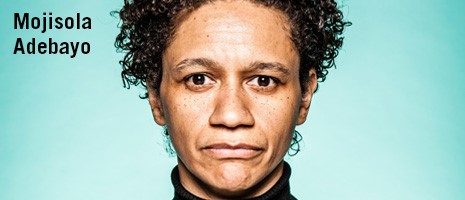PhD Programme

Study in one of the United Kingdom’s leading centres for performance research.
Research students in Drama study with some of the United Kingdom’s leading performance researchers. In the most recent Research Excellence Framework, Drama at Queen Mary was the highest-rated Drama department in the United Kingdom.
Queen Mary is a partner in the AHRC-funded London Arts and Humanities Partnership (LAHP). Eligible applicants to the PhD Programme in the Department of Drama are encouraged to apply for an AHRC studentship. LAHP offers up to 90 studentships per year for postgraduate research students studying arts and humanities disciplines at Queen Mary and seven other institutions across London.
Research students are a central part of intellectual life in Drama. They contribute significantly to our research culture and to the discipline more widely. In addition to pursuing their own scholarly projects, students organise Drama’s research seminar series Quorum, as well as symposia and conferences driven by their research interests. Students also present their research at national and international conferences, publish articles, reviews, journalism, plays, and DVDs, and perform widely at venues in the UK and internationally. Research students play an important part in Drama’s collaborations with leading arts organisations, including the Barbican, Shakespeare's Globe, Gran Teatre del Liceu Barcelona, Actors’ Touring Company, the London Film Festival, LIFT, and AfroReggae.
Students are supported through individual supervision and an extensive programme of research training. All PhD students are members of the Queen Mary Doctoral College, which further advances doctoral and post-doctoral research at Queen Mary.
Our students have won awards for their research, including: Theron Schmidt (2009) and Charlotte Bell (2013), winners of the TaPRA postgraduate essay competition; Tiffany Watt-Smith (2009), winner of the Journal of Victorian Culture Graduate Essay Prize Competition; Cecilia Sosa (2013), winner of the most distinguished doctoral thesis of the year by Association of Hispanists of Great Britain and Ireland; Kirstin Smith, winner of TDR: The Drama Review Essay Prize (2014); Genna Gardini, Canadian South African Award for Women Playwrights (2020).
Our graduates hold posts in arts organisations and as lecturers and post-doctoral researchers in universities in the UK and internationally.
Structure of the degree
In the first year of the programme, students work toward the completion of the Year One Progression Review, which results in the submission of a prospectus (extended proposal) and a piece of written work (or written work plus practice in the case of students who intend to submit practice as part of their final submission). This work is usually submitted toward the end of April for full-time students and November for part-time students. In addition, in June of the first year, students organise and present their work at the annual Research Student Colloquium for first and second year students.
In subsequent years of the programme, student progress is discussed and reviewed as part of the Annual Review, usually in July each year.
Throughout the duration of the programme students are supported in the development and completion of their projects through individual supervision and an extensive programme of research training.
Full-time students should submit in a maximum of four years; part-time students should submit in a maximum of seven years. Please note that full-time funding is for three years.
We encourage students to participate in the disciplines and fields their research engages through attendance and presentation at conferences, publications, and performances.
Areas of Supervisory Expertise
Staff in Drama possess a wide range of expertise and contribute to a graduate research culture where interdisciplinary work thrives.
Within our five main but overlapping strands of research – on cultural histories of performance, transnational performance, live art, the cultural industries, and socially engaged performance – we offer supervision on topics including, but by no means limited to:
- Postdramatic theatre
- Feminist, queer and anti-racist performances and theories
- Theatres of the African diaspora; black theatre and performance
- Transnational performance, especially theatre and performance in Brazil, China, Germany, Ireland and South Africa
- Live art, performance art and contemporary performance, including histories and theories of solo, durational, endurance and one-to-one performance
- Theatre and labour; performance as work
- Theatre for social change, social justice and inclusion, including cultures of protest and resistance
- Applied theatre, community theatre, theatre in education
- Theatre and performance historiography, archives and documentation
- Audiences, spectatorship and reception
- Space, place, and urban development
- Affect, feeling, atmosphere and emotion in theatre and performance
- The senses in performance, including visuality, aurality and hapticity
- Illness, disability, ageing and the medical humanities in performance
- Participation, interaction, social practice and relational aesthetics
- Early modern performance, including contemporary performance of Shakespeare and his contemporaries
- Theories of voice, sound, movement and actor training
The Department of Drama is interested in the possibility of collaborative supervision arrangements, for example with Geography, Film, Business and Management, English, Languages, and History at Queen Mary.